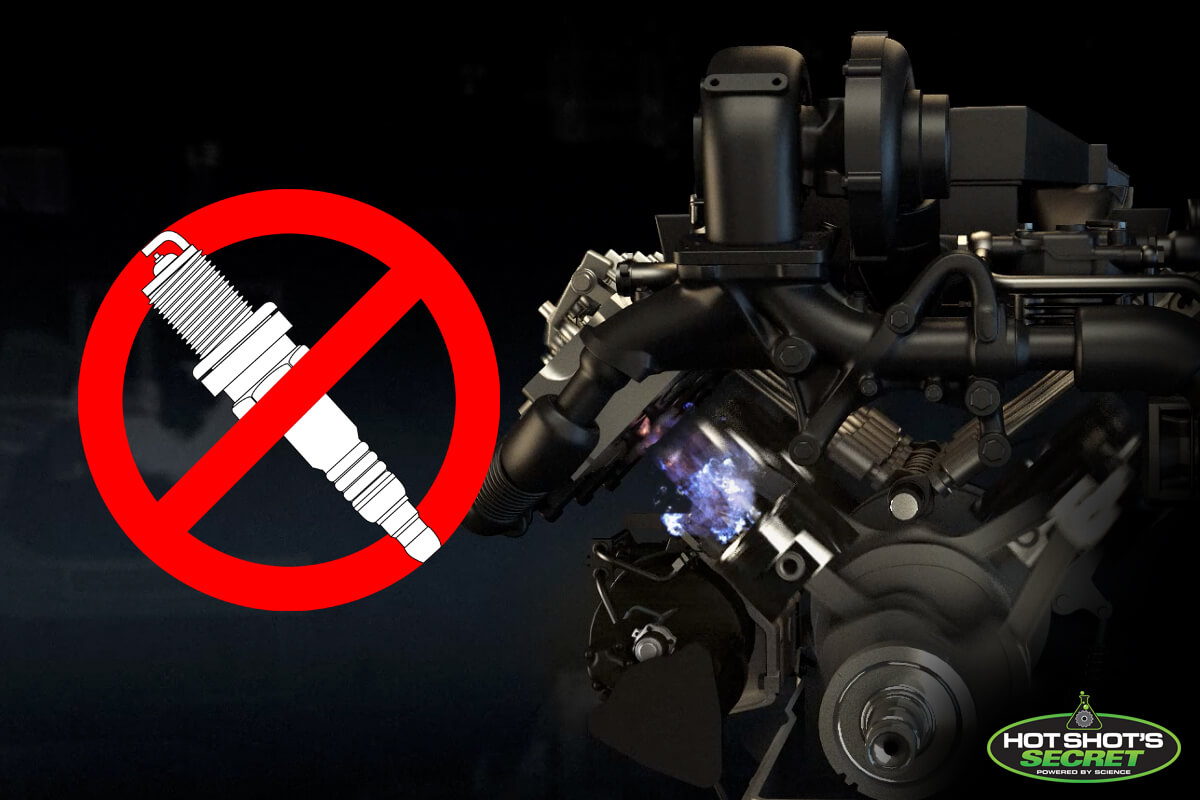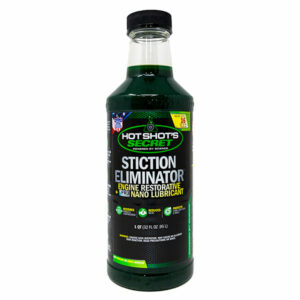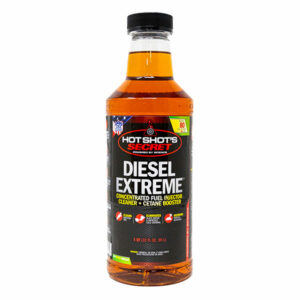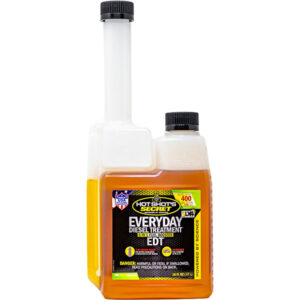
Diesel Versus Gas Engines
A primary advantage of the diesel engine is that it provides more torque than a gas engine. For this reason, most big rigs on the road are diesel.
Utility trucks pulling boats, trailers and heavy loads primarily have diesel engines. Most worksite trucks are diesel vehicles that help drag away or haul heavy loads in their truck beds. With the need for utility-based vehicles, it’s important to take care of a vehicle’s power plant and understand some differences in their parts and maintenance.
“It takes torque to move weight,” states Joe Duke Skelton from Speedy Duke’s Diesel (Odessa, TX). “When comparing gas to diesel, if a gas vehicle does the same ‘work’ as a diesel, it’s going to burn five times more fuel,” Skelton claims that for many work-duty truck owners, once they buy a diesel, they never go back to gas for a work truck. “For the everyday driver, gas is great,” he says. “But for pushing and/or pulling any kind of a load in a vehicle, the gas owner typically finds themselves renting a diesel vehicle to get the job done.”
Do Diesels Have Spark Plugs?
There are no spark plugs in diesel engines, highlighting a significant variation between gasoline and diesel engines.
The first difference that comes to mind with a diesel is the fuel. Where gasoline can ignite in its current state, diesel must first become atomized for ignition. “Diesel is a cleaner burning fuel than gas,” says Skelton. “Diesels have all of the emissions but the fuel burns richer and cleaner with a regeneration system helping burn solids in the exhaust emissions.” The difference in ignition methods also explains why diesel engines don’t need spark plugs, which we’ll explore in the following section.
Why Diesel Engines Don’t Need Spark Plugs
A gas engine needs spark plugs to create a spark to ignite the gasoline and create the combustion stroke of the piston. A diesel engine has no spark plugs because it uses a compression ignition process. The cylinders in the combustion chamber have glow plugs that heat the chamber to aid ignition if a diesel engine is cold.
Skelton says, “The difference in diesel is that diesel fuel doesn’t ignite. A spark plug has no use with diesel fuel because there is no need to ‘light’ the diesel fuel. Instead, the glow plug only heats the combustion chamber.”
Other reasons diesel engines don’t need spark plugs include:
- Fuel properties: Diesel fuel reaches a compression temperature high enough to light without a spark. In cold conditions that cause harder starts, the glow plug helps heat atomized fuel mist.
- Engine component design differences: Diesel engines are designed to rely on compression for ignition. Parts such as pistons and cylinder walls handle significant pressure compared to gasoline engines.
- Improved thermal and operating efficiency: Diesel engines with compression ignition achieve higher compression ratios, making them more thermally efficient. Their non-spark combustion process produces more torque and improves fuel economy.
Glow Plugs in Diesel Engines
Combined with the piston design and the heated chamber from the glow plugs, the diesel fuel becomes atomized into a mist. The mist becomes more volatile, igniting in the combustion chamber with a much more efficient explosion, pushing the piston through its stroke with a stronger force.
“In the bigger picture,” says Joe, “yes, both engines require combustion, but with diesel, the use of a glow plug instead of a spark utilizes heat instead of an arc, making the fuel molecules move quicker and thereby producing more efficiency in power.” A well-tuned gas motor typically pushes in the range of 130 psi in compression. A well-tuned diesel motor typically pushes in the range of 425 psi.
Glow Plug Pros and Cons
Glow plugs are pivotal in ensuring diesel engines start without issues when it’s cold. Consider the following pros and cons of these components.
Pros of Glow Plugs
We’ve listed some pros below:
- Increased fuel efficiency: The heated air in the combustion chamber promotes fast and efficient fuel vaporization, improving fuel efficiency.
- Lower emissions: As fuel efficiency improves, emissions are reduced. One is usually as a result of the other.
- Improved cold weather starting: The heat from glow plugs helps diesel engines start smoother in harsh climates due to compression ignition during combustion.
Cons of Glow Plugs
While they are beneficial, glow plugs can experience issues:
- Heat timing: Glow plugs operate by heating the element at the tip with electrical energy, reaching over 1,000 degrees Celcius. The engine won’t start up quickly if it doesn’t reach this temperature within about five seconds, resulting in poor starting performance.
- Aging and wear: These plugs have long lifecycles, lasting up to 100,000 miles. However, they can deteriorate sooner and should be replaced with visible signs of wear and damage.
- Risk of failure: Glow plugs may fail for several reasons, at which point they should be tested and possibly replaced.
- Extreme cold concerns: Glow plugs are designed to start diesel engines in cold weather, but subzero temperatures can prevent aged or worn components from performing.
The Differences Between Spark Plugs and Glow Plugs
Glow and spark plugs play a role in starting a vehicle. The former pre-heats the air in combustion chambers to help diesel engines start in cold weather, while the latter is necessary to ignite the fuel-air combination in gas engines.
Explore additional differences between these engine parts below.
Ignition Method
How they ignite in the engine differs.
- Spark plug: A spark ignites the fuel-air mixture in the combustion chamber.
- Glow plug: The heat helps to increase the pressure of the vaporized diesel fuel in the chamber.
Pre-Heating Requirement
Both vary in terms of pre-heating requirements.
- Spark plug: No pre-heating is required to start the engine.
- Glow plug: Requires pre-heating for a few seconds to start a cold engine.
Component Design
Spark and glow plugs look similar but vary in their design.
- Spark plug: The central electrode and insulator are designed to withstand high voltage.
- Glow plug: The cylindrical heating element is designed to withstand thermal strain.
Common Diesel Diagnosis and Repairs
With the enhanced compression, every diesel diagnosis must consider the pressure created in a diesel engine. Skelton says, “Regardless of a fuel leak, a coolant leak, blowby, or almost any service on a diesel, compression affects almost everything, in comparison to to a gas motor.” Many gasoline repair shops may complete improper analysis of the difference between gas and diesel, and therefore, sometimes an owner may want to consider a specialty shop for diesel maintenance.
Blowby, for example, is considered a crankcase pressure concern. Crankcase pressure is produced by weakened piston rings, allowing the compression to blow past the rings and down into the crankcase. Adding diesel compression forces the combustion past the rings. The proper diesel pistons, rings and oil help create a tighter seal while reducing the friction of a tighter tolerance piston ring, providing an added bond to reduce blowby.
“Pulling an oil fuel cap that appears puffy can be an indication of blow-by,” says Joe, “also indicating some internal engine repairs may be ahead. The condition is more noticeable on a diesel due to the higher compression. Where a gas engine can sometimes run longer under the adverse blow-by conditions, a diesel engine cannot run very well, because the higher compression blowing by the rings causes a lack of torque, thereby causing much harder starting conditions.”
Preventing Carbon Buildup in Diesel Engines
With added diesel compression creating more force against the moving parts, added friction is also built into each revolution, requiring more lubricity and improved flow-through from the engine’s motor oil. “The internal components in a diesel work way harder than a gasoline engine,” says Skelton. “Fuel and oil additives can help counteract some of the intensified diesel energy by reducing the friction, reducing the wear and tear, helping eliminate engine noise on components that may be wearing and enhancing the combustion of the diesel fuel.”
By substituting the spark plug with a glow plug, the mist conversely ignites against more surface area, eventually causing a carbon build up. When buildup reduces the ignition efficiency, stiction eliminator additives act as a detergent throughout the motor, cleaning away the carbon interference and helping restore a more efficient and cleaner burn.
“Additives don’t make the motor run differently,” says Joe, “but they do help counteract the additional stresses incurred with a more efficient motor, thereby aiding in the longevity of the motor and helping reduce total cost of ownership in fuel economy, maintenance and repairs.”
Customer Testimonials
“I have a handful of customers that come in after every over-the-road haul they make, to replenish their Hot Shot’s Secret additives and oil.”
I recently had a customer that came in weekly, for about three months straight. He had a lot of miles on his engine, but the motor was in very good condition. The only issue he experienced was some top end noise. So we kept filling him up with the Hot Shot’s Secret FR3 and Everyday Diesel Treatment. He would come in religiously to add these products and after a few months, his engine noises have now gone away and his truck is running great.
I had another customer with engine noise, that after only two treatments of FR3, his engine noise went away.
On the 6.0s, 7.3s that come in, Hot Shot’s Secret Stiction Eliminator saves us about 75% of the injectors that seem to be on their way out.”
– Joe Duke Skelton of Speedy Duke’s Diesel (Odessa, TX)
Choose Hot Shot’s Secret’s High-Performance Additives and Oils to Support Your Diesel Engine
Enhance your diesel engine’s performance with our high-performance fuel additives. Our specially formulated treatments are scientifically proven to help you address and resolve diesel-related issues. Our vast product line has numerous benefits, such as maintaining a clean and lubricated engine, improving engine performance and reducing engine wear for enhanced longevity.
We’re so confident in our products that we offer a 100% satisfaction guarantee! Let us help you save money replacing your vehicle parts by keeping them in optimal condition with our superior additives, oils and spray lubricants.
Place your order for a product like our Everyday Diesel Treatment or Diesel Extreme to see the difference. If you need more information about our products, want to become a dealer, or anything else, contact us, and we’ll gladly assist you.




